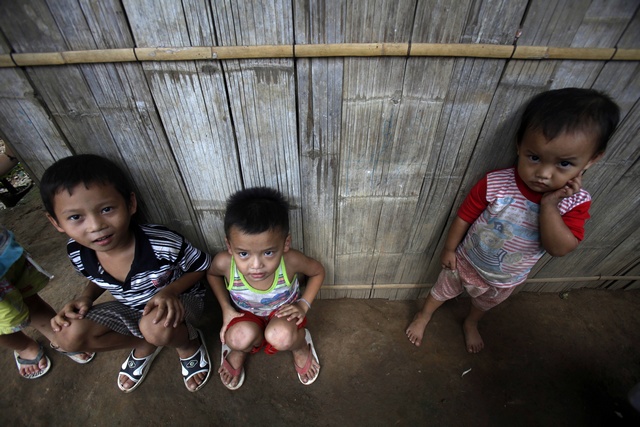The United States resettlement programme for Burma’s refugees living in Thailand has officially ended, said the United Nations High Commissioner for Refugees (UNHCR) on Wednesday.
Last Friday marked the final deadline for refugees living in nine temporary shelters along the Thailand-Burma border to apply for permanent placement in the US, as “UNHCR received the final expressions of interest from eligible Myanmar [Burma] refugees.”
The programme’s pending termination was announced early in 2013 in Mae La, the largest of Thailand’s border camps, home to an estimated population of 43,000 people. Programme closure was rolled out independently at each camp, where the announcement was followed by a three month deadline to submit an application.
“Almost 90,000 people have been re-settled in several countries since 2005, and those who are still in the system will be processed accordingly,” said Mike Bruce of The Border Consortium (TBC), a Thailand-based NGO that offers development and administrative support to refugee camps along the border.
“Those who are still in acute or urgent need can be considered on a case by case basis,” he confirmed.
The US resettlement programme is among the largest to have served Burma’s refugees in Thailand; since its start in 2005, more than 73,000 people from Burma were resettled in the US, far outnumbering other host nations like Australia and Canada.
Since the announcement of the programme’s termination, about 6,500 resettlement applications were filed, a 2,500 count increase from previous years, according to UNHCR figures.
In mid 2013 the UNHCR, in collaboration with the Royal Thai government and administered by Thai NGO Mae Fah Luang Foundation, surveyed refugees living in Mae La Camp to obtain more information about camp demographics and to gauge refugees’ preferences for alternatives to camp life.
[related]
Vivian Tan, spokeswoman for UNHCR, told DVB that “The majority of the respondents said they preferred either resettlement to a third country or to stay in Thailand.” Tan added, however, that more than half of those who preferred not to return to Burma were unregistered refugees, hence they would be ineligible to apply for resettlement regardless.
Thailand is not party to the 1951 UN Convention on the Rights and Status of Refugees, which guarantees legal status and protection to asylum seekers. Those who fled from civil war and persecution, largely from southeastern Burma, are casually permitted to remain in Thailand. The UNHRC then registers refugees and oversees subsequent applications to third-country resettlement programs.
Nearly half of the population in Mae La is not UNHCR verified, and the registration of new refugees ceased completely in 2006, leaving the option of resettlement unavailable to many who have fled in recent years.
Termination of resettlement programmes begs the question of eventual repatriation, which at the moment has no clear timeframe, according to Tan.
Less than ten percent of refugees surveyed last year said that they prefered to return to Burma, citing such reasons as “a lack of trust in the current cessation of hostilities, a perceived lack of status or citizenship” and “access to land,” which makes the prospect of ‘voluntary return’ seem a distant goal.
Based on this assessment from the refugees themselves, coupled with a general evaluation of Burma’s in-country progress, Tan said that, “at this point the conditions in southeast Myanmar are not yet conducive for organised returns to be promoted. Some of the key safeguards are not in place to ensure a safe, dignified and sustainable return. In particular, there is no permanent cease-fire in most places of return.”
As the possibility of landing a new life abroad dwindles for those left along Thailand’s western boundaries, opinion seems unanimous that while they can’t move on, returning to Burma is not likely imminent.
“We agree with the UNHCR, the government of Myanmar and Thailand, and our international partners,” said TBC’s Bruce, “that now is not the time to return.”
An estimated 120,000 refugees from Burma remain in nine border camps, according to the UNHCR.



